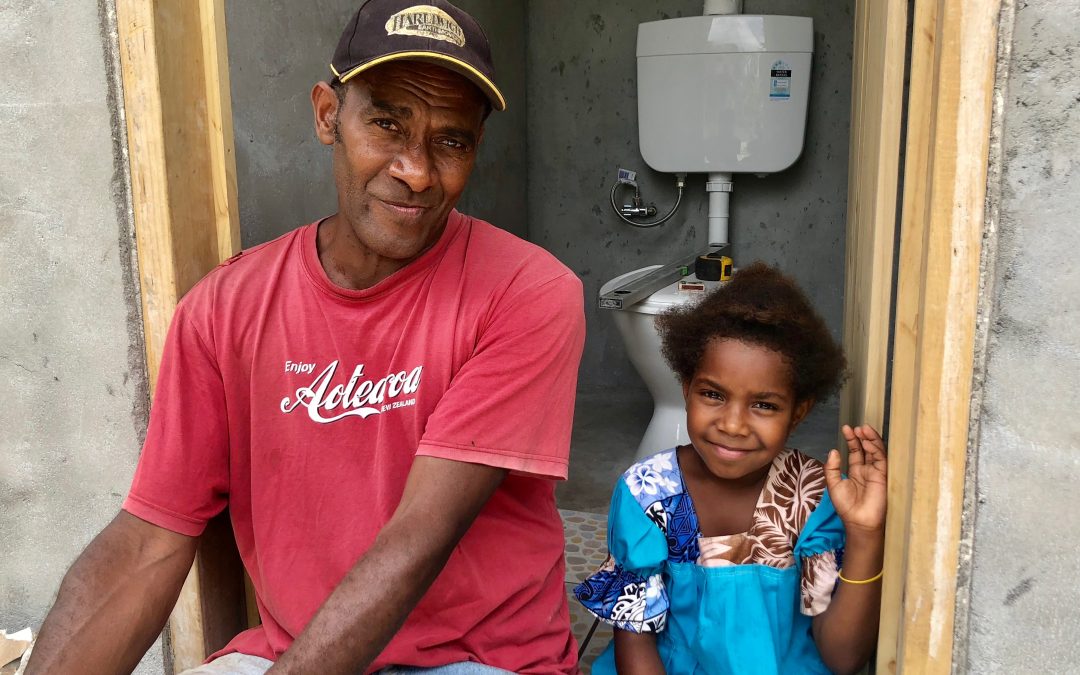What kind of toilet do you need when you don’t live on land? We ask that question every day, because we work with communities living on lakes, flood plains and high in remote mountains. Living in the places where standard sanitation systems don’t work.
If we are to achieve SDG6 then we have to develop and market innovative sanitation technology that works for the millions of people who live in challenging environments. But in addition to technology, EWB Australia also supports governments to develop best practice policies and standards so appropriate sanitation is accessible and well managed.
Over the past year in Vanuatu EWB Field Professional Matt King has supported sanitation enterprise teams in Port Vila with new technical skills for installation and maintenance in peri-urban areas. But it is his work with Nelly Ham, at the Ministry of Environmental Health that will have far reaching benefits across this nation of 85 Pacific islands. “People are used to the bush toilet, the pit latrine, and when you build new toilets you really need to explain the maintenance part, the building part. We want to have standards for improved, sealed and composting toilets. EWB bring the knowledge, the technicalities, and the transformation of knowledge for making one proper way of doing things.” explains Nelly, who runs Vanuatu’s Environmental Health Unit.
Working with Nelly, Matt adapted best practice sanitation approaches into a set of codes, specifications, and processes covering all types of toilets and imported fittings, developing Vanuatu’s first set of sanitation standards. To bring these into law so that they can be enforced, amendments to the public health act will also be required, something Stephanie Hamel, EWB WASH Program Manager in Vanuatu, will now guide.
“We will not only have the standards, we also have to make the amendments to the Public Health Act on sanitation,” explains Nelly “You have so many types of fittings, some are good some are not, and sometimes they don’t last. So for any pipes, any fittings, any sanitary devices that come in to the country they must be one standard. So in the amendment it says that the Director of Public Health must have a registry of all the devices that come in – something that we don’t have now.”
Around 50% of Ni-van people have access to a toilet, but the market for sanitation products and systems is growing and the government is keen to support this demand. These regulations are crucial to ensure safe installation and effective governance, and will apply to manufacture, supply of parts and to sanitation enterprises. “It will mean that we can have control for anyone who wants to build toilets…and we want to encourage the enterprises, maybe climb up the sanitation ladder a little bit. We can enforce and then maybe things can become better.” She says.
“They have helped, they have really made a lot of difference,” says Nelly of the EWB team that has worked on these technical guidelines. “In five to ten years…my hope would be if we can reach all these people in the outer islands with one good toilet, and the knowledge of why they should have a toilet. For all to have an improved toilet – maybe 90%. That would be really nice.” She smiles “I would be a really happy woman.”
EWB Australia and EWB NZ are proud WASH partners in Vanuatu.


